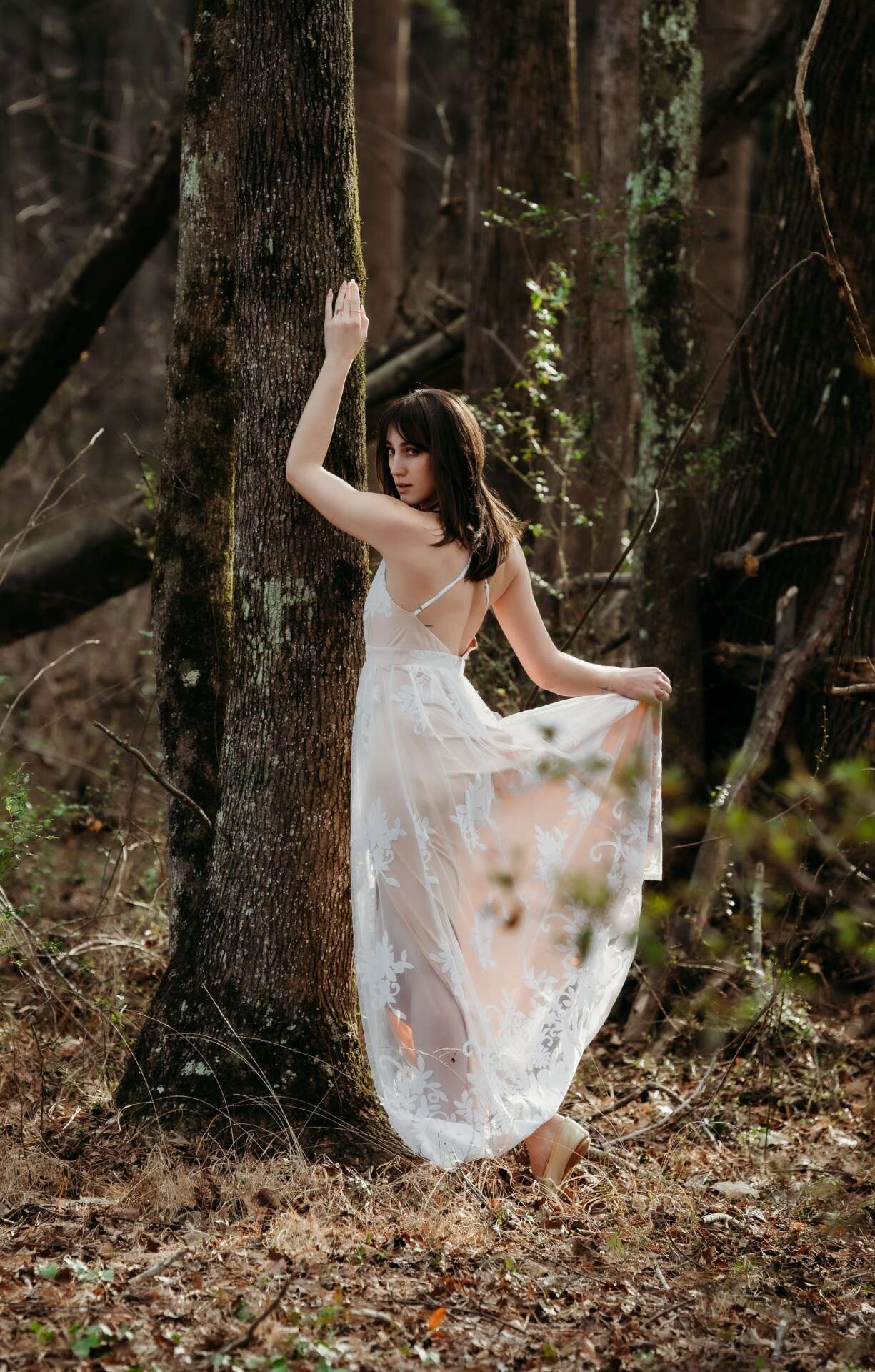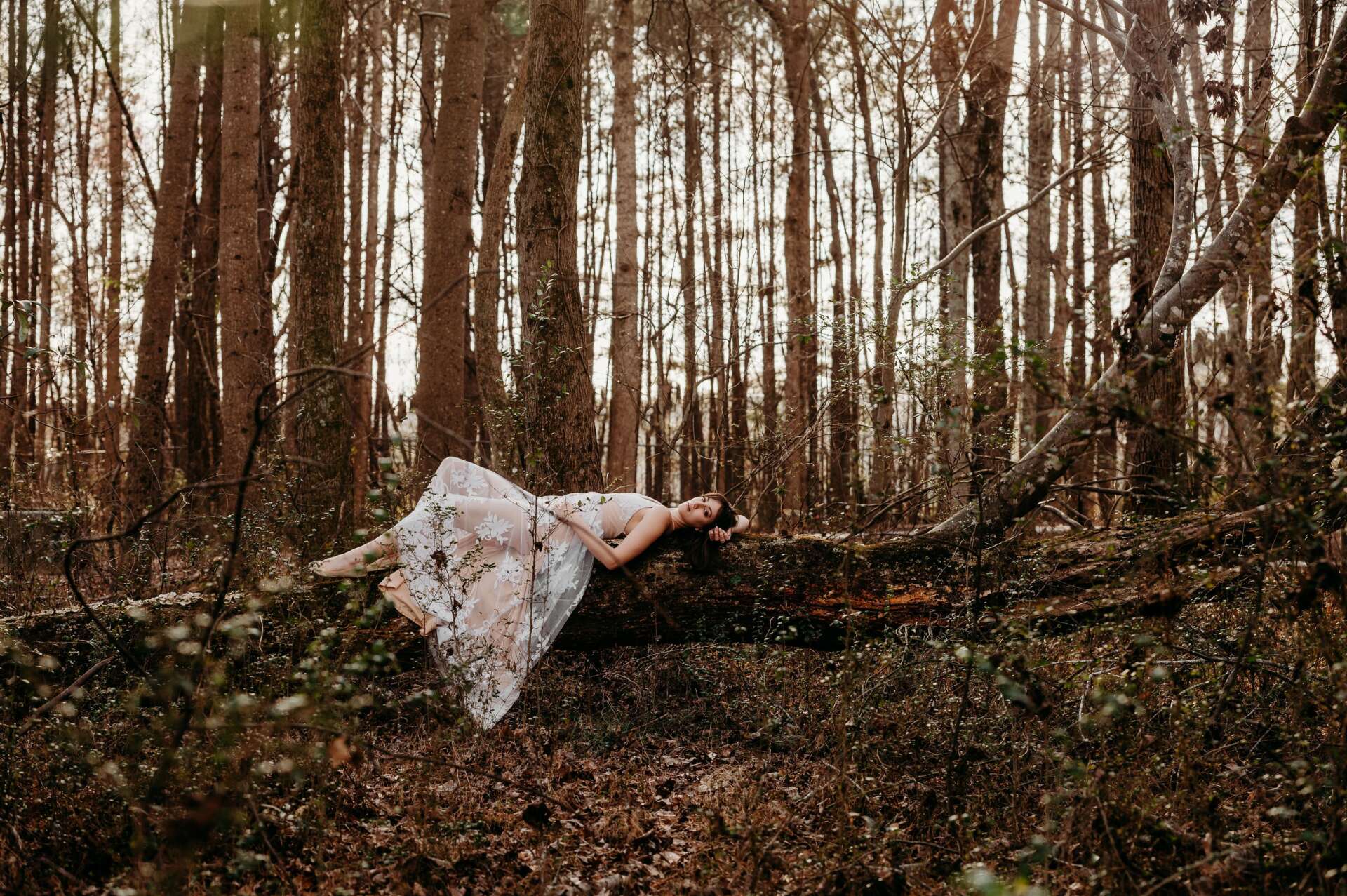We recently connected with Samantha Webb and have shared our conversation below.
Samantha, looking forward to hearing all of your stories today. Learning the craft is often a unique journey from every creative – we’d love to hear about your journey and if knowing what you know now, you would have done anything differently to speed up the learning process.
I began my journey as a storyteller when I was around 5 years old. My sister and I would spend most of our days as children exploring the woods and fields where we lived. That allowed us the freedom to use our imaginations to create stories that we would act out together with just ourselves as the characters, or our favorite Breyer horses and plastic trolls. I can remember how vivid these stories would be with backstories and character development so when I got to highschool, the transition to doing theatre performances was a relatively easy one. I was very introverted as a kid, and was fairly reserved so when my best friend Isabel dragged me to a musical theatre audition, I was hesitant to say the least. I am so grateful for theatre, because it taught me to be bold, brave, and courageous. That was the beginning for me and when I knew I was going to be an actor for the rest of my life. I started professionally training as an actor the year I graduated from university. My college roommate drove me from New Hampshire where we went to school all the way to Boston, Massachusetts for my first film audition. Other than theatre in highschool and university, I really had no idea what I was doing and the transition to film had a bit of a rough start. It is so different from theatre where your movements and how you emote is so grand. Film is intimate, it’s subtle, and I fell madly in love with it. I immediately started getting involved any way that I could in the Boston film scene doing student films, independent films, industrials, and print work as a model., Around that time I began studying with my acting studio which I am still involved with today. Of course in the beginning it was just a hobby for me, I was still considering pursuing my Master’s degree but about a year and a half into my professional training, I realized any other profession would make me feel stifled somehow and I made a conscious decision to take it more seriously. Financially I have been fortunate to be able to invest a lot of money into my training through my survival jobs, but I know that if I had been in a better financial situation, I would have invested even more time and money into it. That was certainly an obstacle and honestly it still is today. It’s hard to decide where to invest your money at this point in my career when I have professionally been training for 8 years. However as an artist you are your own business so I would certainly like to put more energy into business classes for actors as a feel consistent in my craft. I will say I never feel as though I am done learning. I have leveled up, and upgraded, but the joy of this career for me is that there is an endless amount of information to learn. That tenacity and joy for the craft propels me forward everyday.


Awesome – so before we get into the rest of our questions, can you briefly introduce yourself to our readers.
I have been acting since I was about 9 years old, and began my professional acting career and calling myself an actor when I was about 25. It wasn’t until the year I moved to Atlanta that I started answering the “what do you do for a living?” that I began responding as “I am an actor” and I believed it. I realized that the only difference in how I viewed my professional life as an actor was mindset. I had to believe that I could operate on a professional level as an actor and decide that the job that paid my bills was simply a survival job. Making that distinction changed my entire perspective on how I moved in the world. I think it’s also important to note that with that title, it makes every financial decision more important and forces you to look at the industry more like a business. Growing up I looked at the entertainment industry with rose colored glasses and truly thought that if I trained enough and worked on my craft enough, that I would book work. That was very misguided thinking and I’m grateful for wisdom from actors who have been in this industry much longer than I have to teach me otherwise. Now I look at the industry as the craft and business portions as being just as valuable, but completely different entities.


What do you find most rewarding about being a creative?
I know that telling stories can change the world. That feeling you get at the end of the film while you’re sitting in the theatre and you can’t move because you are so overwhelmed with being in those feelings, is the reason I wanted to be an actor. I couldn’t believe the spectrum of emotions that I would feel watching storytellers being honest and vulnerable. The ability to be raw and organic and so in the moment was astounding to me. The most rewarding part of being an artist is being able to gift that to other people.
Have any books or other resources had a big impact on you?
I would have to say “The War of Art” and “Turning Pro” both by Steven Pressfield, changed my creative life. He describes this feeling of being held back by society by what we are fed from a young age. The concept that you can’t make a life creatively and pay all of your bills comfortably. I have realized that the reason we feel that way has to do with capitalism. Unfortunately money is a necessary evil, so the goal should be to pursue your creative life alongside a profession that pays your bills until you no longer need the survival job. I am grappling with that at the moment, trying to decide how to resource my creative life by having a survival job that I enjoy and feeds my creative life at the same time. It’s really challenging as an artist to find someone that pays your bills and doesn’t drain you emotionally and spiritually to the point where you no longer feel creative. The reality is that as an artist, you can’t wait for other people to tell you you are an actor; like when you book a role and get paid for it. The reality is that we have to find ways everyday to feel like an actor, whether that’s reading a script, or watching a film, or filming a scene at home with a friend. Don’t wait for someone else’s permission to be an artist or to live your life creatively. No one will advocate for your artistic life the way that you will. I recommend both of this books to anyone struggling with “the war of art”.
Contact Info:
- Instagram: @samanthanoble17
Image Credits
Alexandra Zak Photography – Personal photo Cheyenne Rose Photography – Brand photos


